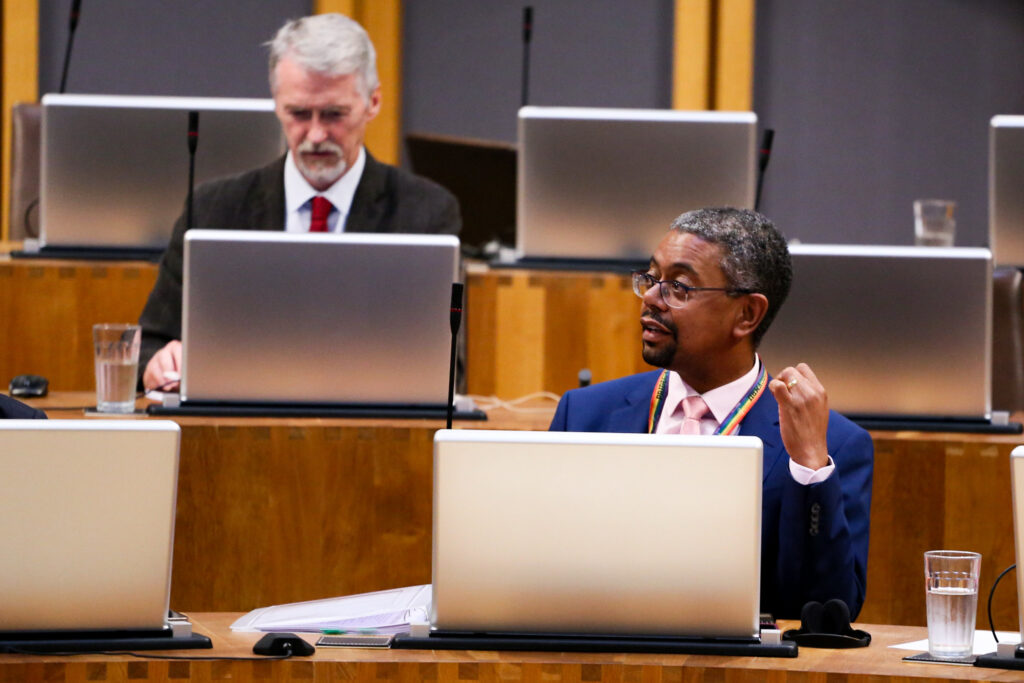Laura McAllister argues Wales needs more Assembly Members to deliver for its people and communities
Devolution in Wales has come a long way in 18 years. However, as the Assembly’s powers have steadily grown, the number of Members has remained the same. The Assembly is now on the verge of becoming the Welsh Parliament. It will soon be operating on the basis of a new reserved powers model under the Wales Act 2017 – with responsibilities for the first Welsh taxes in 800 years, including income tax-varying powers, and for establishing its proper place in the UK’s changing constitutional landscape.
Our forensic analysis of the capacity of the Assembly to carry out its role, and comparison with other equivalent legislatures, clearly demonstrate that the Assembly is undersized and overstretched. Much has been done already to explore different ways of working and to make the most of the 60 Members the Assembly has. For example, alternatives such as increasing the hours the Assembly sits, bringing in external expertise, or increasing staff capacity have been tried, but they have not been and cannot be sufficient to address the fundamental issue of the severely limited time available to just 60 Members.
As an independent, impartial Panel, we have used our expertise and experience to conclude that a 60 Member Assembly does not have the capacity it needs to fulfil its responsibilities, now and in the future. For that reason, we have recommended that the Assembly needs between 20 and 30 additional Members, elected through a more proportional electoral system with accountability to electors and diversity, at its heart.
Our analysis is consistent with the conclusions of many who engage with and study the Assembly, who recognise that, with only 60 Members, the institution lacks the capacity it needs. The Richard Commission emphasised this thirteen years ago. The Silk Commission repeated the message in 2014. The Assembly Commission highlighted it two years ago. While there is never a perfect time for significant constitutional or electoral change, this issue will not simply resolve itself.
The capacity of the Assembly matters. Assembly Members have crucial roles to play in holding the Welsh Government to account, scrutinising and overseeing policy, legislation and spending, championing constituents’ interests, and engaging the people of Wales in our maturing democracy. When these roles are fulfilled effectively, there is a real, direct and positive impact on the lives of people and their communities.
I have no doubt that many will question whether money should be spent on more politicians at a time of austerity. However, as we explain in our report, while the additional cost may be significant in absolute terms, it should be kept to a minimum and will represent a very small proportion of the money spent by the government that the Assembly oversees. Our report also calls on the Remuneration Board and Assembly Commission to revisit the total staffing support, services and financial resources provided to Members in the case of a larger Assembly so that the cost is kept to an absolute minimum. Decisions taken in the past have been taken at least partly on the basis of compensating for the lack of Member capacity in an Assembly of only 60 Members.
We believe that even marginal improvements in the scrutiny of Welsh Government spending and policy decisions will reap significant dividends to the taxpayer.
The Assembly Commission’s cost estimates for one off-costs for additional members range between £2.4 million for 20 Members, to £3.3 million for 30. They estimate annual recurrent costs of £6.6 million for 20 Members, £9.6 million for 30 Members.
To put it in perspective, the total cost in the first year (including both the one-off costs and the recurrent annual costs) for 30 additional Members, of £12.9 million, is 0.08% of the Welsh block grant. Currently, our four MEPs in Wales cost the taxpayer around £7.2 million a year (£1.79 million per Member based on 2013 HM Treasury estimates).
A March 2017 opinion poll for BBC Wales showed that a majority of Welsh voters were keen for the Welsh Government to take more powers over day to day life in Wales. Democracy does come at a price – but this is the place to invest. The Assembly’s powers are, broadly, in line with those of the Scottish Parliament and Northern Ireland Assembly – why should Wales be the only nation in these isles with a clearly under powered parliament?
Changing the Assembly’s size also provides an opportunity to reform and revitalise the electoral system so that the Assembly better reflects the communities it serves. Our report recommends that a gender quota is integrated within the electoral system to safeguard the achievements of the Assembly and political parties in Wales in relation to gender-balanced representation. Similarly, giving 16- and 17-year olds the right to vote could become a powerful way to involve and engage the young people of Wales in our democracy, increasing their political awareness and participation now and in the future. After all, it is their future.
Calling for more politicians is unpopular. We understand that. Nevertheless, we believe that, as devolution in Wales enters its next phase, the Assembly cannot continue as it is without risking its ability to deliver for the people and communities it serves. This report is a call to action. From April 2018 the Assembly will finally have the powers it needs to address these issues itself, and to ensure that the 2021 election delivers a parliament that truly works for the people of Wales.
All articles published on Click on Wales are subject to IWA’s disclaimer.






Yeah fine, we’ve been having these debates for many years now and I struggle to see anything original here.